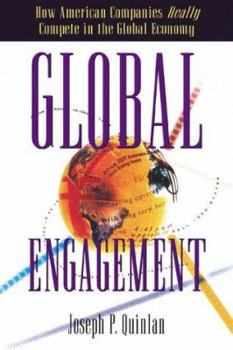Global Engagement: How American Companies Really Compete in the Global Economy
In this incisive book, a noted economist and specialist on global multinationals explains that most investors and policy makers don't understand how U.S. companies operate and compete in the world... This description may be from another edition of this product.
Format:Hardcover
Language:English
ISBN:0809226707
ISBN13:9780809226702
Release Date:September 2000
Publisher:McGraw-Hill/Contemporary
Length:267 Pages
Weight:1.28 lbs.
Dimensions:1.0" x 6.3" x 9.3"
Customer Reviews
1 rating
Understanding the misunderstandings of trade deficits
Published by Thriftbooks.com User , 21 years ago
This book provides an overview of the basic recent history and dynamics of global trade and investment, focussing on the United States. Its primary value lies in understanding the use and misuse of trade deficit statistics - a phenomenon which has plagued the United States since its trade surpluses vanished at the end of the 1970s - which should also make this book a boon to business executives who periodically read of journalistic lanments of the lack of U.S. corporate competitiveness when looking at figures of U.S. trade deficits.Quinlan points out that there are at least two channels through which a US firm (or a national firm of another country) can sell good and services abroad: either directly trhoguh exports, or through an overseas affiliate, or both. In fact, he spends considerable effort in assembling statistics to show that U.S. multinational affiliate sales are a very significant share of the sales of corporations to consumers in a given nation, say Germany or Australia.Quinlan ably draws from datasets provided through surveys undertaken by the U.S. Department of Commerce to correct the misleading impression that U.S. trade deficits create among certain commentators. However, such data are not generally available on a worldwide basis for all countries, and until they are available, we may have to content ourselves with what trade statistics do report and signify.






